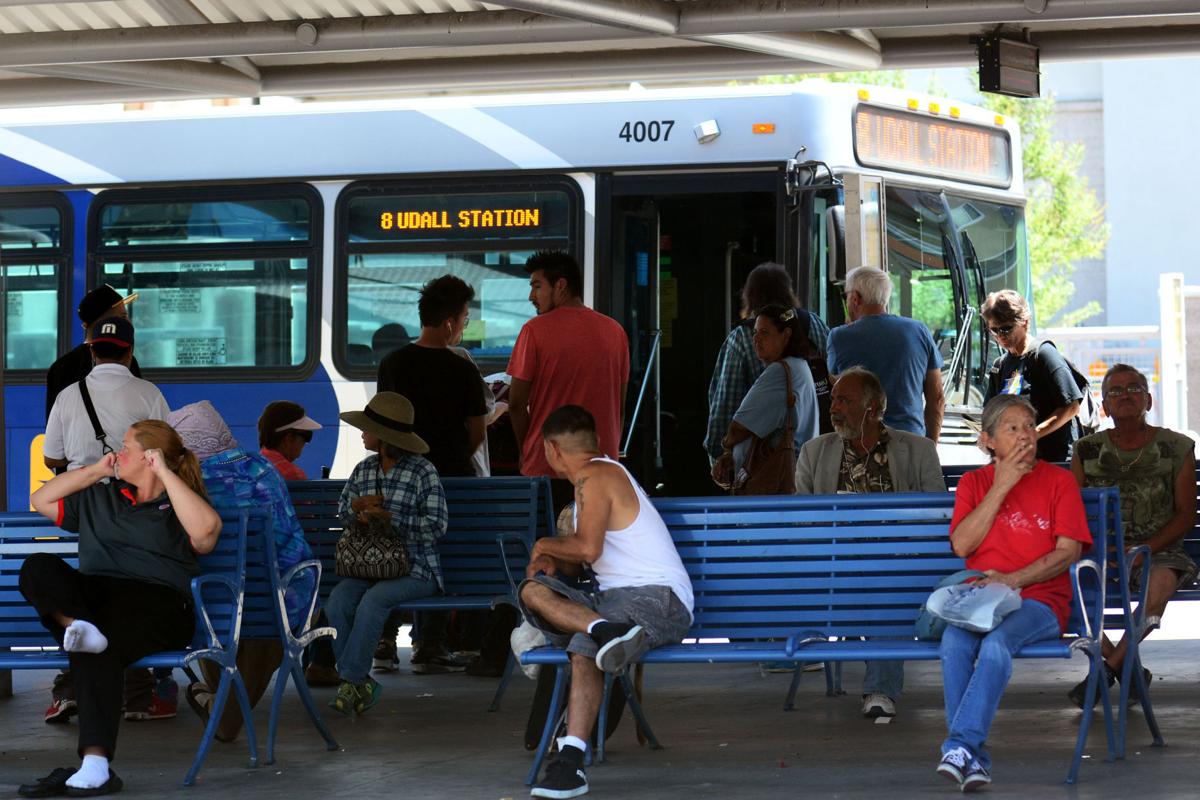After numerous public meetings, at least four proposals to consider and one delayed vote, the Tucson City Council voted unanimously to raise bus fares Tuesday night.
What they passed was a modification of what was known as Option 4, the most recent plan put forward to raise revenues from Sun Tran bus riders.
That plan calls for the full cash fare to first rise to $1.75 from $1.50 and the economy fare for low-income riders to rise to 60 cents from 50 cents. However, those increases will be delayed after Ward 2 Councilman Paul Cunningham suggested a few extra months may make the transition to the higher fare easier for riders.
Instead of taking effect on Oct. 16, as originally planned, the increases will come on line Jan. 1. Additional increases will also be delayed to Jan. 1, 2018.
At the suggestion of Cunningham, the full cash fare will stay put at $1.75, instead of rising to $1.85 as called for in the original plan, but economy cash fares for low-income riders will rise to 75 cents at the start of 2018.
There were several other modifications, including a slower transition to $22.50 for 30-day economy passes. All other multiday passes, as well as fares for Sun Van riders, will also increase over the same period.
Prior to those changes, the plan was expected to increase Sun Tran revenues by roughly $1.9 million over the first two years. Fares were last increased in 2011.
Before the vote, council members heard from supporters and critics of raising fares. Members of the Tucson Bus Riders Union, which has advocated for not raising fares and instead trying to increase ridership, showed up in strong numbers. So too did city firefighters and police officers, most of whom spoke in favor of raising fares.
Tucson Fire Department Capt. Mark Maibauer told the council that increases of some kind were necessary to keep the fiscal year 2017 budget balanced.
However, bus rider Ivo Ortiz said that bus riders, many of whom are low-income, shouldn’t bear the burden of balancing the budget.
“Instead of raising bus fares, maybe we should be talking about bus shelters. Have you seen some of our bus shelters out there? It’s atrocious,” he said, echoing the comments of other fare increase opponents.
After the vote, Brian Flagg, a founding member of the bus riders union, described it as a “slap in the face for poor people. It’s a slap in the face for the planet.”
The union has warned that raising fares a year after a bus strike took a bite out of the number of riders could lead to a downward spiral in ridership.
The plan approved calls for some investment in improving bus infrastructure, including repairs to bus stops.





